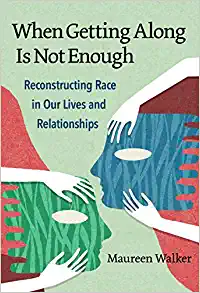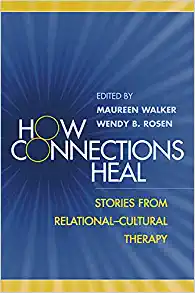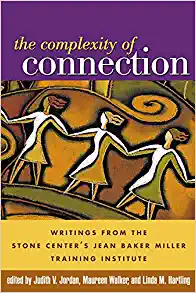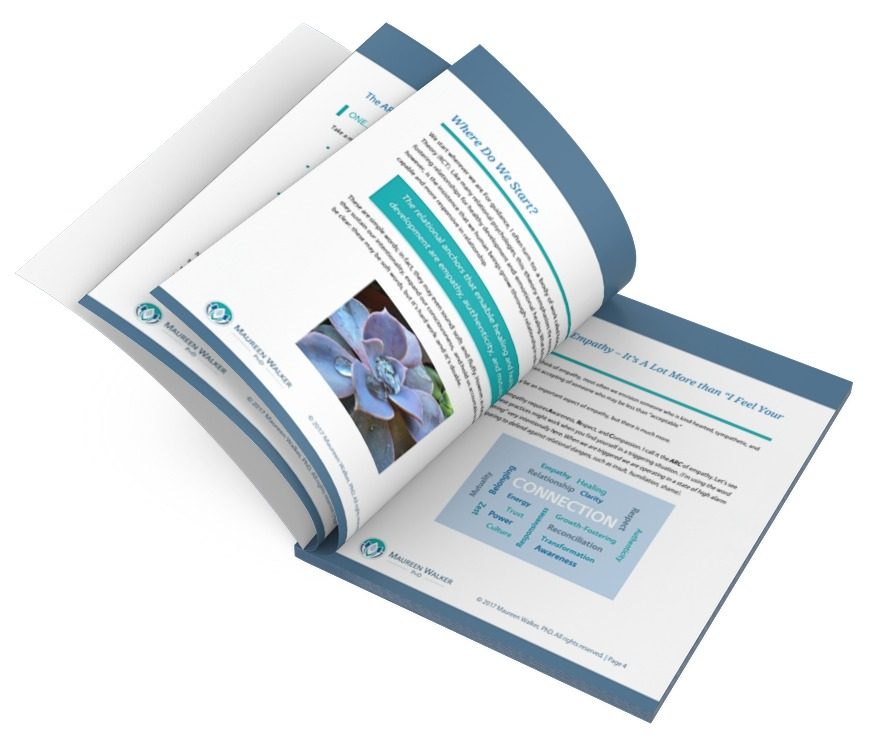Author
Expanding Our Vision of Humanity
As a life-long educator and learner, I am currently writing a book that provides practical insights and guidance for repairing the cultural disconnections that undermine authentic relationships in the 21st century. This book will help us question the habits of mind and spirit; cultural legacies that lead us to believe the myths that keep us divided from each other across social identities such as race, class, gender, and religion. My goal is to help us transform our legacy narratives of disconnection to new visions that enable us to be exemplars of positive possibility in the world.
Maureen is available to be interviewed or provide articles on the following topics:
- Racial Healing and Reconciliation
- Empathy
- Living a Fully Authentic Life
- Truly Connecting with Others
- Achieving Social Justice




Author: Maureen Walker, Ph.D.
Now more than ever, race has become a morphing relational dynamic that has less to do with the demographic census box we check and more with how we make sense of our lives—who we are and who we can become in relationships with others. Using anecdotes from her practice as a licensed psychologist and as an African American growing up in the South, Walker provides a way for educators and social service professionals to enter into cross-racial discussions about race and race relations. She identifies three essential relational skills for personal transformation and cultural healing that are the foundations for repairing the damage wrought by racism. While Walker does not sugarcoat the destructive history of racism that we all inherit in the United States, the book’s vision is ultimately affirming, empowering, hopeful, and inclusive about the individual and collective power to heal our divisions and disconnections.
Authors: Wendy B. Rosen, Maureen Walker, Ph.D.
This practice-oriented casebook shows how relational-cultural theory (RCT) translates into therapeutic action. The book explains key concepts of RCT and demonstrates their application with diverse individuals, couples, families, and groups, as well as in institutional settings. Emphasizing that relationship is the work of therapy, case narratives illuminate both the therapist and client factors that promote or interfere with movement toward connection. Highlighted are the ways in which cultural contexts profoundly influence relationships; how growthful connection inevitably includes conflict; and how experienced therapists work on a moment-by-moment basis to engage with and counteract personal and cultural forces of disconnection.
Edited by Judith V. Jordan, Maureen Walker, and Linda M. Hartling
In this important third volume from the Stone Center at Wellesley College, founding scholars and new voices expand and deepen the Center’s widely embraced psychological theory of connection as the core of human growth and development. The volume presents an absorbing and practical examination of connection and disconnection at both individual and societal levels. Chapters explore how experiences of race, ethnicity, sexual orientation, class, and gender influence relationships, and how people can connect across difference and disagreement. Also discussed are practical implications of the theory for psychotherapy, for the raising of sons, and for workplace and organizational issues.
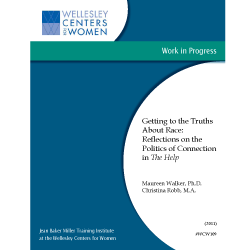
Getting to the Truths About Race: Reflections on the Politics of Connection in The Help
Part I. “Getting to the truths about race…and the stories we tell along the way” by Maureen Walker, Ph.D.
Although good intentions may be necessary, they are never sufficient to sustain an authentic conversation about race. Because shame and anxiety are endemic to racially stratified cultures, what may start as well-intentioned discourse typically devolves into dread, recrimination, or escapist sentimentality. Using the best-selling novel The Help as a focal point, this paper discusses the critical relational capacities required to facilitate movement toward new relational possibilities.
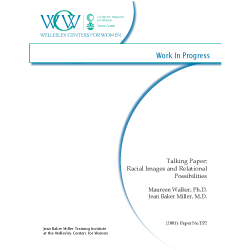
Racial Images and Relational Possibilities (Digital)
Jean Baker Miller Training Institute (JBMTI)
Authors: Maureen Walker, Ph.D., Jean Baker Miller, M.D.
This conversation deals with some of the psychological consequences of structured inequities for those socially defined as “more than” as well as those defined as “less than.” Using Relational-Cultural Theory’s concepts, the talk illustrates how racial and other social or economic inequities interfere with the mutual openness to influence, which is the source of growth. The speakers also discuss the interrelationship of “controlling images” and relational images.

